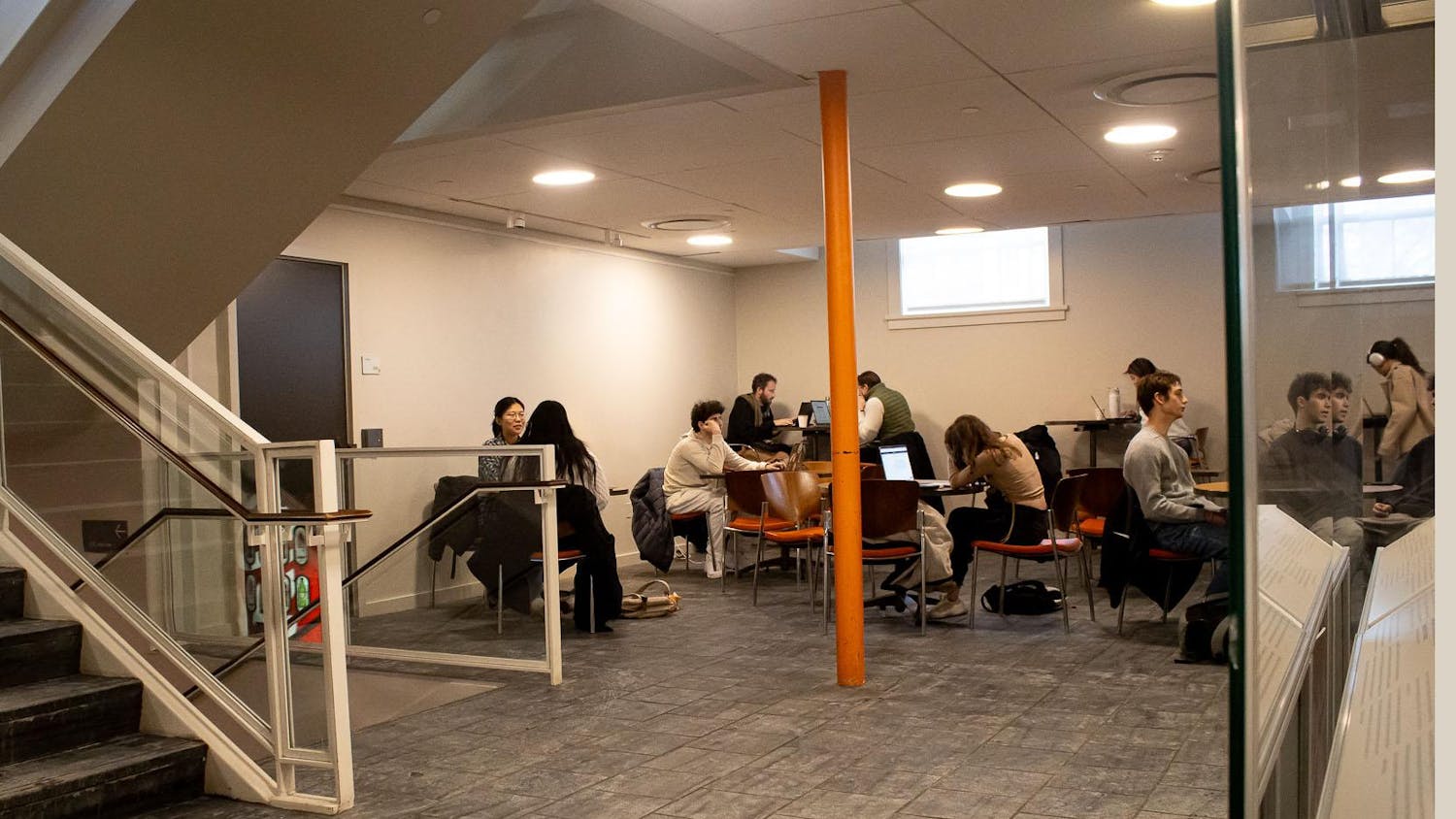Professor Stephen Porder received the Fulbright-Tocqueville Distinguished Chair Award to conduct research and teach at the Institut de Physique du Globe de Paris next year.
During his stay in Paris, Porder, who is a professor of ecology and evolutionary biology and environment and society and assistant provost for sustainability, will develop new projects on Reunion Island. His teaching and research will be focused on "understanding the role of geologic processes in driving ecosystem development, teaching about global biogeochemical cycles and giving public lectures on the transition to a more sustainable society," according to the University's press release.
”It was the goal of the Fulbright program since 1946 to bring people together; it offers the platform and resource to academics; you have this venue and chance to connect with people and to share knowledge and experience,” according to Aferdita Krasniqi, outreach and recruitment officer and Europe lead for the Fulbright U.S. Scholar Program.
Porder will collaborate with professors and students at the University of Paris, honing in on his interests in “intact tropical forests and the consequence of their conversion to agriculture,” according to his personal website. Through fieldwork, chemical and isotopic analyses, geographic information systems and remote sensing, Porder tries to "identify biogeochemical patterns across landscapes" to better understand how these patterns affect ecosystems. He also incorporates the patterns into forming models to predict the response of ecosystems to anthropogenic changes.
Porder is also planning to extend his vision of the Anthropocene Campus beyond the University. "The idea of the Anthropocene Campus is to train students in the broad, multidisciplinary thinking required to push through the changes that need to happen if we are to create a more sustainable world," he wrote in an email to The Herald.
As a Fulbright-Tocqueville Distinguished Chair, Porder will also collaborate with colleagues in the Politique de la Terre program at the University of Paris "to help shape their vision of the 'anthropocene campus'," according to the press release.
"If humans are to thrive in the anthropocene, we need to learn how to do things differently than we have in the past," he wrote.
Porder also wrote that he has "much to learn from the French approach to the Anthropocene Campus," and hopes that his visit will result in a "longer-term conversation between Brown and (his) French colleagues."
Porder wrote that his path to ecosystem and biogeochemistry was guided by his passion for outdoors and his intellectual interest in "understanding the way the Earth's living systems function." Though he grew up in New York City, Porder developed an interest for outdoors "in places like Vermont and New Brunswick, Canada." After studying history as an undergraduate at Amherst College, Porder received his masters in geology from the University of Montana.
During this time, he also taught skiing in Vermont and earth science in New York. Porder then went on to complete his Ph.D. in ecology at Stanford University, and started teaching at Brown in 2007, according to his website.
Collaboration between American and French institutions is one of the core principles behind the foundation of the Fulbright-Tocqueville Distinguished Chair Award. The award was established in 2005 to commemorate the 200th birthday of the 19th century French political scientist and historian Alexis de Tocqueville, Karsniqi said.
The Fulbright-Tocqueville Distinguished Chair Award is highly competitive each year, as the selection process not only looks at candidates' academic accomplishments, but also their potential to serve as cultural ambassadors. The program looks for applicants who "are going to represent the U.S. values abroad," Karsniqi said. "This year, we included new questions about how well (scholars) can work with other cultures (because) we want to make sure the people we selected are tolerant and open-minded," she added.
Beyond high credentials and impact in the academic community, Fulbright scholars are also expected to bring what they learn from their exchange experience back to the US and the local community, such as by integrating their findings into their own curriculum and research, Krasniqi said.
Looking at the year ahead, Porder said that living anywhere in the era of COVID-19 is a challenge, "and living in a place where one doesn't know the culture, medical system or language very well is hard — all the more so during a pandemic.” But Porder recognizes that these are challenges that many are facing: “It's just the way life is and I'm lucky to have the choice to be in France."

ADVERTISEMENT




